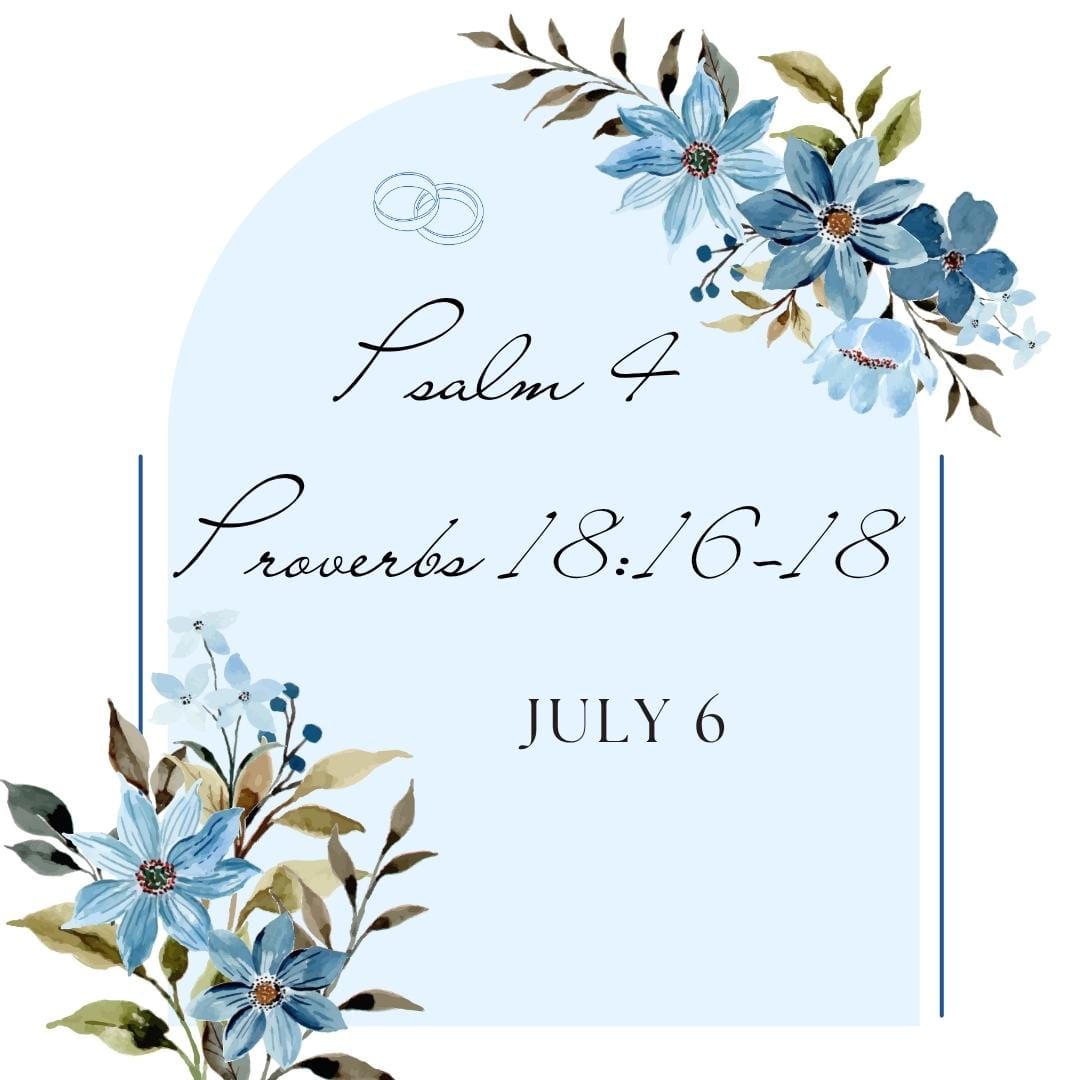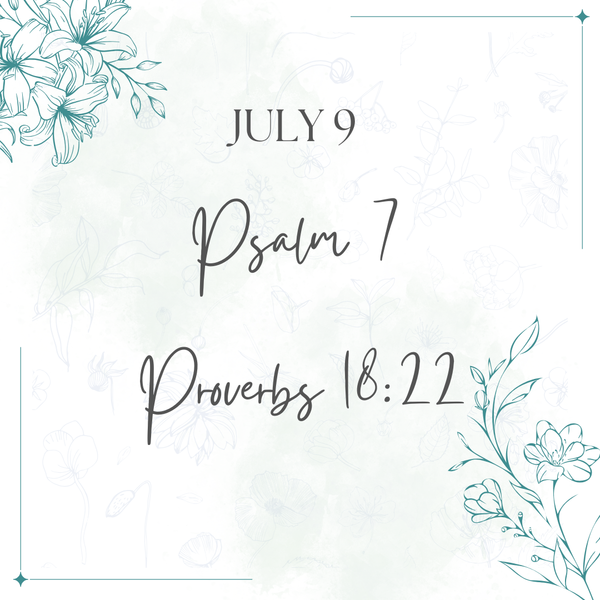July 6 PSALM 4; PROVERBS 18:16-18

- In Psalm 4:1, David pleads for God’s mercy based on past deliverance. How does remembering God’s past faithfulness help renew your emotions when facing current anxiety or distress?
- Psalm 4:2 rebukes those who love lies and chase after false gods. What modern “vain words” or false pursuits tempt you emotionally, and how can you redirect your heart to trust in God's truth instead?
- Verse 3 says, “The Lord will answer when I call to him.” How does this assurance shape your emotional response to rejection, fear, or silence from others? Have you experienced Lord answering you when you call to him?
- Psalm 4:4 instructs us to be angry and not sin—pondering in our hearts on our beds and being silent. How can practicing quiet reflection with God at night bring healing and control to unruly emotions during the day?
- In verse 6, many cry out for blessings, but David finds joy in God's presence. How about you? Do you rather have God or have external blessings?
- David turns inward to examine himself before speaking to others. What role does self-examination and stillness play in renewing emotional responses, especially in moments of tension?
- Psalm 4 ends with David lying down in peace because the Lord alone makes him dwell in safety. What specific fear or emotional unrest could you surrender to God tonight, trusting His sovereign protection?
- Proverbs 18:16 says, “Giving a gift can open doors…” How can the act of generosity or kindness—especially when you're emotionally drained—help reset your emotional state and build healthy relational dynamics?
- Verse 17 warns that the first story seems right until cross-examination. How does this verse encourage humility, especially when you're tempted to act on strong feelings before hearing the full picture?
- Proverbs 18:18 speaks of casting lots to settle disputes. How might leaving certain unresolved emotional burdens or conflicts in God’s hands bring peace, rather than clinging to control or retribution?
May meditation on His Word bring you constant joy and strength!



